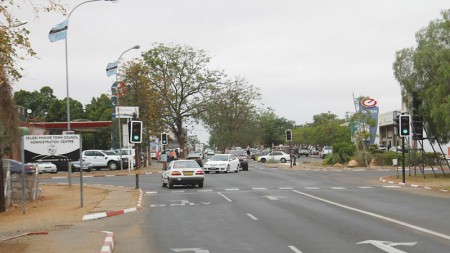The voices of Phikwe�s anguish
Onalenna Kelebeile | Friday September 8, 2017 16:38


Brite Star, the American/Hungarian group, created ripples recently when it signed a Memorandum of Understanding (MoU) with government agencies for a P1.4 billion aviation project in Selebi-Phikwe, to create 3,000 jobs.
On the streets here, however, not everyone is convinced by the latest promise of recovery the for the town.
Botswana Mine Workers Union general secretary, Moffat Ramokate is skeptical about the entire affair, citing the disappointments the town has suffered before.
He cites Pula Steel that he says raised the hopes of many people only to disappoint and even contribute to BCL Mine’s collapse, without creating the jobs that were promised.
“It is not the first time that Selebi-Phikwe’s hopes are being raised, so we cannot be excited until we see tangible results. Currently, the big question is whether this is really going to happen.”
For Ramokate, even the much-touted agro-processing plant has not yielded the hyped outcomes.
“We cannot celebrate now because signing is just signing. Even those that failed in the past were also signed for.
“Government must wake up and scrutinise every investor coming to set up so that we do not lose like what happened with the textile factories that settled in Selebi-Phikwe before.
“Government must conduct thorough investigations to identify genuine investors before pouring money into any investor. It is a pity that government has all the necessary expertise and capacity to do so but it just fails.”
Sandra Hughes, a businesswoman who has been operating in town for many years, believes Selebi-Phikwe must be treated as an emergency case as a result of BCL’s closure. She says no one will remain in town to sustain local businesses and maintain the buying power, if ex-BCL employees are expected to pay rent in the mine’s houses, as they cannot afford.
It is presently unclear whether the ex-employees will be evicted. “We acknowledge that government has introduced incentives to attract investors but that does not work for already existing businesses. We really need government to intervene. We need more manufacturing businesses that increase the buying power to come and set up here.” Hughes wonders how long Brite Star will take to create the jobs it says it will create, and where would the town will be by then.
“Brite Star is a long term project. Where would we be by then under this already unfavourable economic situation? We are however, ecstatic that such a massive project is coming.” Alfred Sebolao, who runs a small printing company, believes in thinking outside the box and exploring markets in areas removed from Phikwe.
“I also urge companies outside this town to open their doors for the Selebi-Phikwe business community until the situation improves. I am hopeful Brite Star will boost the Selebi-Phikwe economy and replace the void created by the mine closure.”
Town mayor, Molosiwa Molosiwa, is brimming with hope. For him, the town’s future is bright following the signing of an MoU between SPEDU and the council to together to revive Phikwe’s economy.
“Even the informal sector will benefit from the spillover as even those in the transport sector will have the opportunity to transport workers to Selebi-Phikwe on a daily basis. Other major projects are coming as well. We must know that minerals deplete at some point so if the mine reopens it should just come as a bonus and should not derail us from pressing on with the diversification of our local economy. Some towns have no mines, but they are surviving.”
Molosiwa urges the business community and residents to never lose hope and desert the town, as the leadership is doing all it can to revive the town.
“We are open for any stakeholder to come on board,” he added. Brite Star will be sub-leased a total area of not less than 10 hectares of land adjacent to and within Selebi-Phikwe airport. The additional land outside and adjacent to the present airport reserve shall be used for future expansion of the project and related activities.
